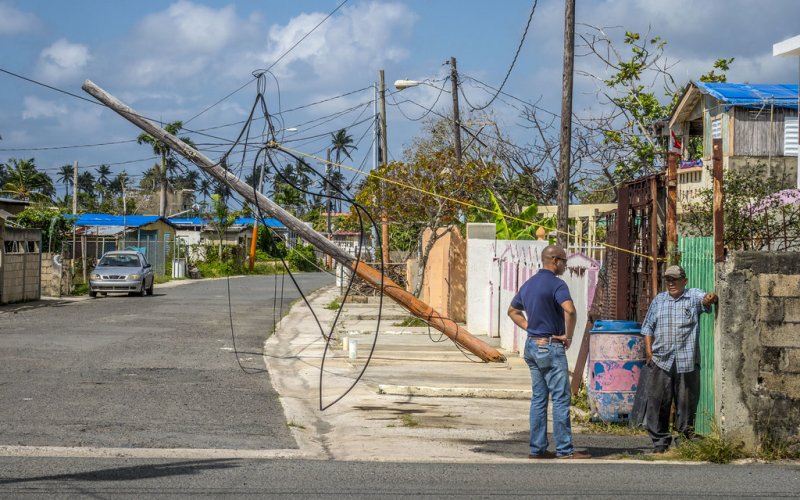UAlbany Climate Scientist Awarded Federal Grant to Improve Resiliency of Coastal Power Grids

By Mike Nolan
ALBANY, N.Y. (Feb. 29, 2024) — The U.S. Department of Commerce’s National Institute of Standards and Technology (NIST) and the National Science Foundation (NSF) recently awarded more than $7 million in grants to support disaster resilience research across the nation— including a project led by Jorge González-Cruz of the University at Albany.
González-Cruz is a coastal-urban climatologist, with a specific focus on helping vulnerable island communities better prepare and respond to climate extremes. His new project, among eight funded by NIST, will use Puerto Rico as a testbed to develop new solutions to improve the security and resiliency of coastal power grids around severe weather events.
The collaborative project includes a team of researchers from UAlbany, New York University and the University of Puerto Rico at Mayaguez.
“The energy infrastructure in coastal and islanded regions of the U.S. are frequently exposed to high winds and precipitation,” said González-Cruz, a Professor of Empire Innovation at UAlbany’s Atmospheric Sciences Research Center. “The current knowledge and tools available to assess weather-induced risks to the power transmission systems are very limited, often resulting in catastrophic consequences, such as the aftermath of Hurricane Maria. We’re proposing a new, data-driven approach that we believe will offer a significant improvement.”
Reconstructing Extreme Weather Events
In his previous work, González-Cruz led a collaborative project to reconstruct the impacts of Hurricane Maria on Puerto Rico, one of the deadliest storms in U.S. history. This was done through a combination of geophysical models, engineering models of both the power and water grid, reviews of damage reports, and the use of socioeconomic information to determine impacts on low-income communities.
Using the new NIST funding, the research team will join again to reconstruct other major past weather events in Puerto Rico and gather new data, with a focus on resilient power infrastructure and adaptation to a changing climate. Their new strategy includes installation of sensors to monitor the safety of the transmission towers when exposed to extreme weather events.
“Our proposed research builds on long-term collaboration among academic researchers and utility companies on the island,” said González-Cruz. “The main objective is to reconstruct past weather events and collect new data from our installed sensors to develop a predictive modeling framework that can assess the risk of disruption to the electrical transmission system when exposed to extreme weather.”
Along with the project’s research team, González-Cruz also plans to engage with additional engineers and scientists from the academic community, the energy utility sectors, energy regulators and other stakeholders. There will also be direct communication and engagement with the Puerto Rico Energy Commission and the island’s utility leaders.
Two graduate students will be involved with the project, one from UAlbany and one from New York University. Undergraduate students from the University of Puerto Rico-Mayaguez will also participate in field work.
“We will have our graduate students directly involved in the experimental and numerical modeling work, providing valuable experience in both areas,” Gonzalez-Cruz said. “Students will also have ample opportunity to engage directly with project stakeholders.”
Climate Adaptation Network
In Fall 2023, Gonzalez-Cruz joined the Caribbean Climate Adaptation Network (CCAN), which seeks to connect multidisciplinary scientists with community and government stakeholders in the U.S. Virgin Islands and Puerto Rico to better prepare and respond to climate extremes.
He plans to engage the CCAN community in this new project, with hopes of expanding its research to other island communities, along with other areas in the U.S. with complex terrain.
“Puerto Rico is our entry point for this work, but we believe the findings will be transferable to other locations where the distribution power system is at frequent risk,” Gonzalez-Cruz said.
Applicants for the new federal funding were asked to consider natural hazards such as hurricanes and tornadoes; sustained rain, coastal and inland flooding, and tsunamis; wildland-urban interface fires; and earthquakes and how communities could reduce their vulnerabilities to them and increase their resilience.
The projects are funded through the Disaster Resilience Research Grant program, which NIST and NSF jointly manage.




